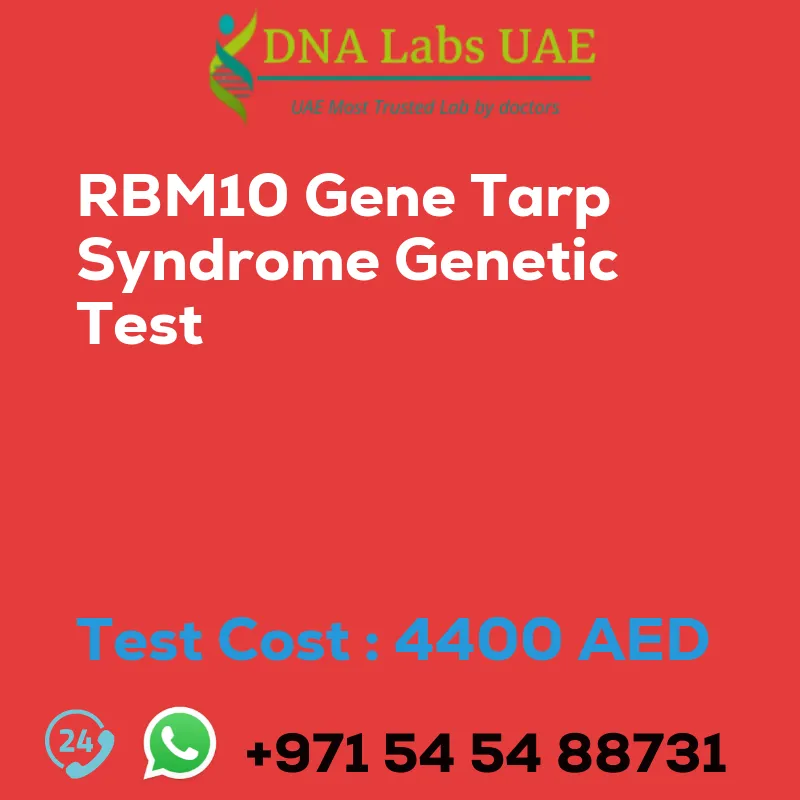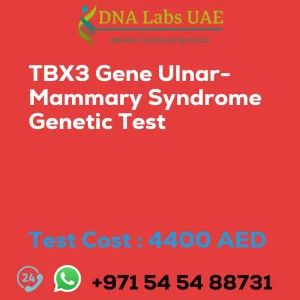RBM10 Gene Tarp Syndrome Genetic Test
Cost: AED 4400.0
Test Components:
- RBM10 Gene Tarp syndrome Genetic Test
Price:
AED 4400.0
Sample Condition:
Blood or Extracted DNA or One drop Blood on FTA Card
Report Delivery:
3 to 4 Weeks
Method:
NGS Technology
Test Type:
Dysmorphology
Doctor:
Pediatrics
Test Department:
Genetics
Pre Test Information:
Clinical History of Patient who is going for RBM10 Gene Tarp syndrome NGS Genetic DNA Test. A Genetic Counselling session to draw a pedigree chart of family members affected with RBM10 Gene Tarp syndrome NGS Genetic DNA Test gene RBM10.
Test Details:
The RBM10 gene is associated with a rare genetic disorder called Tarp syndrome. Tarp syndrome is a neurodevelopmental disorder characterized by intellectual disability, delayed speech and language development, and distinctive facial features.
NGS (Next-Generation Sequencing) genetic testing is a type of genetic testing that uses advanced sequencing technologies to analyze multiple genes simultaneously. In the context of Tarp syndrome, NGS genetic testing can be used to identify any variations or mutations in the RBM10 gene that may be responsible for the disorder. This can help in confirming a diagnosis, understanding the genetic cause of the syndrome, and providing appropriate genetic counseling and management options for affected individuals and their families.
| Test Name | RBM10 Gene Tarp syndrome Genetic Test |
|---|---|
| Components | |
| Price | 4400.0 AED |
| Sample Condition | Blood or Extracted DNA or One drop Blood on FTA Card |
| Report Delivery | 3 to 4 Weeks |
| Method | NGS Technology |
| Test type | Dysmorphology |
| Doctor | Pediatrics |
| Test Department: | Genetics |
| Pre Test Information | Clinical History of Patient who is going for RBM10 Gene Tarp syndrome NGS Genetic DNA Test. A Genetic Counselling session to draw a pedigree chart of family members affected with RBM10 Gene Tarp syndrome NGS Genetic DNA Test gene RBM10 |
| Test Details |
The RBM10 gene is associated with a rare genetic disorder called Tarp syndrome. Tarp syndrome is a neurodevelopmental disorder characterized by intellectual disability, delayed speech and language development, and distinctive facial features. NGS (Next-Generation Sequencing) genetic testing is a type of genetic testing that uses advanced sequencing technologies to analyze multiple genes simultaneously. In the context of Tarp syndrome, NGS genetic testing can be used to identify any variations or mutations in the RBM10 gene that may be responsible for the disorder. This can help in confirming a diagnosis, understanding the genetic cause of the syndrome, and providing appropriate genetic counseling and management options for affected individuals and their families. |








